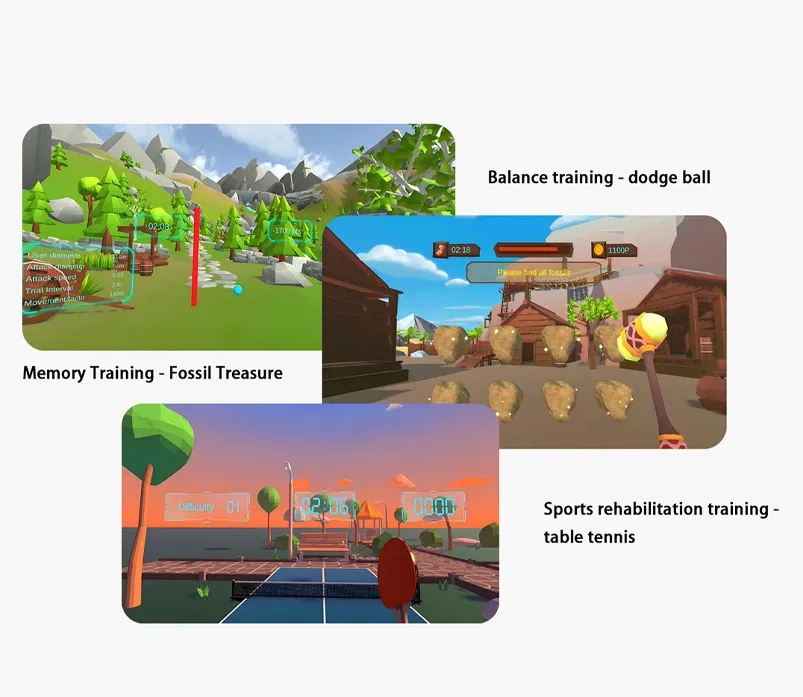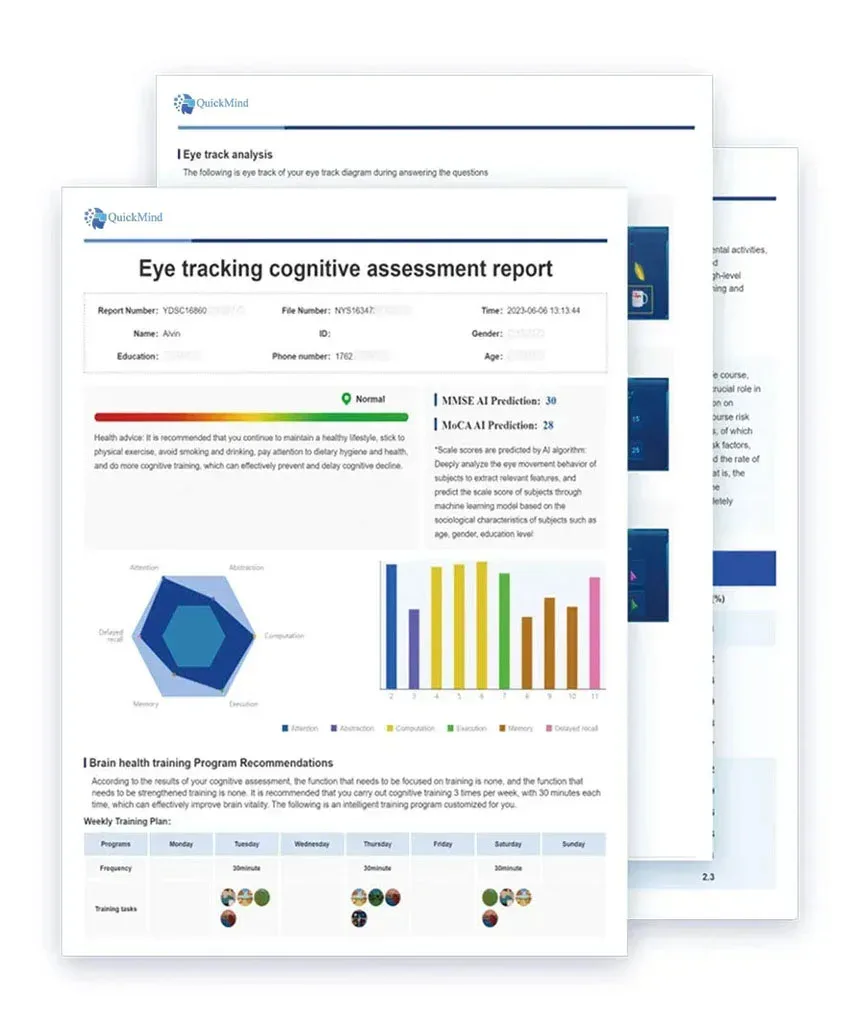
Expanding explorations confirms that computer-generated reality treatment can greatly augment the experiences of users affected by brain function deterioration. By shifting them to quiet settings, VR offers a novel means for intellectual provocation, emotional stabilization, and interpersonal communication. A variety of investigations have established that VR therapy can lessen excitability, stress, and despondency in dementia sufferers while also improving their mindfulness, heedfulness, and dialogue proficiency.
- VR permits patients with dementia to reexperience fond remembrances through immersive simulations.
- In addition, it can yield a comfortable and assisting space for collective interaction, nurturing a notion of attachment and togetherness.
- Professionals hold that VR therapy has the potential to reinvent dementia treatment by offering new and creative ways to deal with the challenging issues faced by persons living with this disease.
Innovative Tech Treatments for Alzheimer's
Increasing software-based approaches are gaining recognition in the territory of cognitive enhancement for individuals dealing with Alzheimer syndrome. These applications exploit technical resources to enhance brain capacity and possibly mitigate the growth of the health issue. Fun-packed workouts, personalized assistance, and brain-computer training are some cases of strategies being examined in this flourishing area. While inquiries are happening, digital therapeutics grant a substitute route for augmenting the conditions of those living with Alzheimer's disorder.Navigating Reality Through Virtual Landscapes: A Novel Approach to Alzheimer's Treatment
Touching individuals managing Alzheimer's dementia, the steady diminution of memory and intellectual capacities can greatly compromise their facility to interact with the immediate surroundings. This weakening condition often produces in detachment, agitation, and a diminished individuality. Modern advancements in virtual reality technology unveil a pioneering pathway to combat these obstacles by building immersive worlds that can boost the brain and renew cognitive function.
Simulated reality settings developed specifically for Alzheimer's affected people can take them in comforting spots, such as their childhood home or a well-liked park area, recalling positive memories and lowering anxiety. Through interactive missions, these virtual settings can also test cognitive abilities like recall, focus, and problem-solving.
The advantages of virtual reality in Alzheimer's treatment are substantial. Early investigations have revealed positive results, with persons indicating improvements in cognitive skills, mood, and overall quality of life. As this technology continues, it holds the key to innovating the way we approach Alzheimer's disease, presenting a new pathway for management and empowerment.
Computer-Aided Reminiscence for Alzheimer's Victims
Reminiscence therapy is an established technique used to enhance cognitive function and affective health in individuals with Alzheimer's disease. This long-standing form of therapy involves inviting patients to express past experiences, often through dialogue. However, a pioneering approach is emerging: VR-mediated reminiscence therapy.
This immersive method utilizes virtual reality headsets to bring patients in simulated environments that bring forth memories from their past. By reliving these artificial surroundings, individuals with Alzheimer's can associate with their past in a meaningful way.
VR's Promise for Dementia Care: Enhancing Memory and Cognition
Virtual reality (VR) is emerging as a aspiring technology in the fight against dementia, making available innovative ways to stimulate memory and cognition. By generating immersive scenarios, VR can facilitate individuals with dementia revisit memories, connect in meaningful activities, and elevate cognitive functions. Studies have proved that VR interventions can result in measurable improvements in memory recall, attention, and positional awareness. Moreover, VR provides a harmless and encouraging space for individuals with dementia to display, reducing feelings of isolation and anxiety.
- In addition, VR can be adjusted to individual needs and preferences, supporting heightened levels of integration.
- Even with the potential of VR, ongoing research is needed to fully understand its long-term impact in dementia care.
Reawakening Past, Forging Connections: VR's Power in Alzheimer's Socialization
Simulated synthetic settings is emerging as a trailblazing solution in the discipline of brain degenerative illnesses. By generating interactive and mutual spaces, VR has the prospect to revive memories, strengthen social interaction, and augment the overall quality of life for clients affected by Alzheimer's. One of the most significant aspects of VR is its ability to take users to familiar locations and memories from their past. Whether it's a jaunt inside a childhood home or a simulation of a beloved holiday, these virtual travels can recall happy memories and bolster cognitive operation. Furthermore, VR can support social interaction by engaging individuals with others who share similar backgrounds. This can be particularly profitable for people with Alzheimer's who may grapple with traditional social interaction. By providing a safe and interesting virtual space, VR can minimize feelings of isolation and loneliness, which are common among subjects managing Alzheimer's. Overall, VR holds immense capacity for remodeling the lives of persons with Alzheimer's by reawakening memories, reestablishing connections, and elevating their quality of life. As technology progresses to develop, digital therapy we can expect even more groundbreaking applications of VR in the field of dementia care.Enhancing Cognitive Training: Applying VR to Alleviate Alzheimer's Symptoms
Simulated immersive settings is rapidly emerging as a disruptive tool in the realm of cognitive training, particularly for individuals experiencing Alzheimer's disease. By immersing patients in interactive and engaging virtual environments, VR-based interventions can augment cognitive functions such as memory, attention, and problem-solving. These games usually incorporate elements of storytelling, exploration, and social interaction, making the training process increasingly entertaining. Studies have shown that VR-based cognitive training can lead to significant improvements in cognitive performance, theoretically delaying the progression of Alzheimer's symptoms. Moreover, VR provides a safe and controlled environment for patients to practice new skills and strengthen their confidence.
- Game elements in VR training can make it exceptionally compelling and amusing for participants with neurological deficits.
- VR simulations can offer believable scenarios that test and activate cognitive functions.
- Personalized VR experiences can cater to individualized wishes and procedures.
Using Simulated Worlds to Aid Dementia Care
Enveloping replicated spaces offer a fresh and encouraging avenue for participants with mental deterioration. These technologies can simulate familiar environments, allowing those affected by cognitive decline to revisit cherished memories and encourage a sense of ease. By combating the problems of dementia, VR platforms have the promise to upgrade quality of life for both people and their assistants.
- Research indicate that VR approaches can significantly impact cognitive function, neural well-being, and even neuromuscular abilities in individuals with dementia.
- Moreover, VR delivers a safe and managed environment for interaction, reducing the risk of anxiety.
- Likewise, VR can boost social bonds by allowing individuals with dementia to interact in cyber activities with others.
Utilizing Virtual Reality for Early Alzheimer's Identification and Management
Alzheimer's condition exhibits a intricate barrier, often continuing unnoticed in its early stages. Nevertheless, virtual reality (VR) is materializing as a groundbreaking tool for early discovery. Through immersive scenarios, VR can evaluate cognitive faculty in ways that traditional methods find challenging to. This prospect allows for prompt management strategies, potentially delaying disease progression and upgrading the quality of life for patients with Alzheimer's.
- VR systems measure cognitive responses such as memory and spatial awareness within controlled environments.
- Tailored VR programs enable patients to partake in mental activation tasks.
- Augmented virtual areas support engaging exchanges for persons with Alzheimer's.
Closing the Divide: VR for Communicative and Interactive Dementia Support
{In the realm of dementia care, innovative technologies are emerging to enhance the lives of clients experiencing mental decline. Virtual reality (VR) is one such solution that holds immense capacity for enhancing social engagement and communication in dementia care. By fabricating interactive simulated worlds, VR can enhance cognitive function, reduce behavioral issues, and ultimately improve the overall well-being of clients affected by dementia.
VR experiences adapted to dementia patient needs can range from recall therapy sessions that bring individuals into past familiar contexts, to interactive games that promote social interaction and cognitive training. Furthermore, VR has the competence to connect clients facing dementia with social networks, regardless of physical space, fostering a sense of inclusion.
- VR can empower in reducing agitation and anxiety by providing a calming and absorbing environment.
- Evaluations have shown that VR interventions can lead to improvements in cognitive function, mood, and social interaction in people affected by dementia.
- As technology expands in evolve, we can expect even more innovative and helpful
